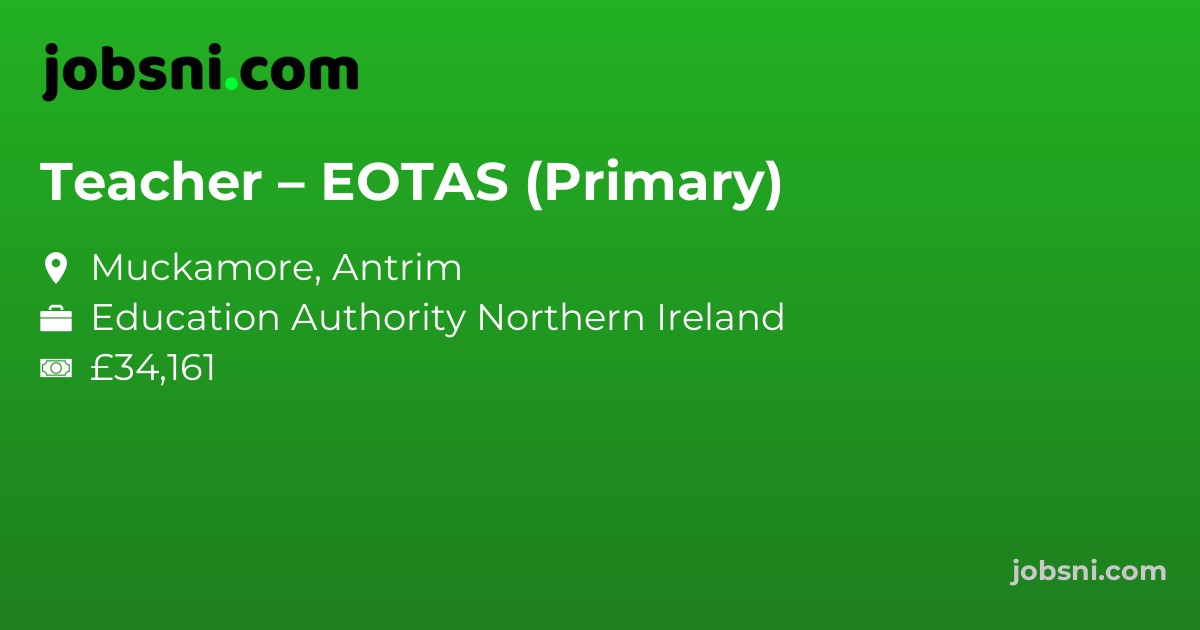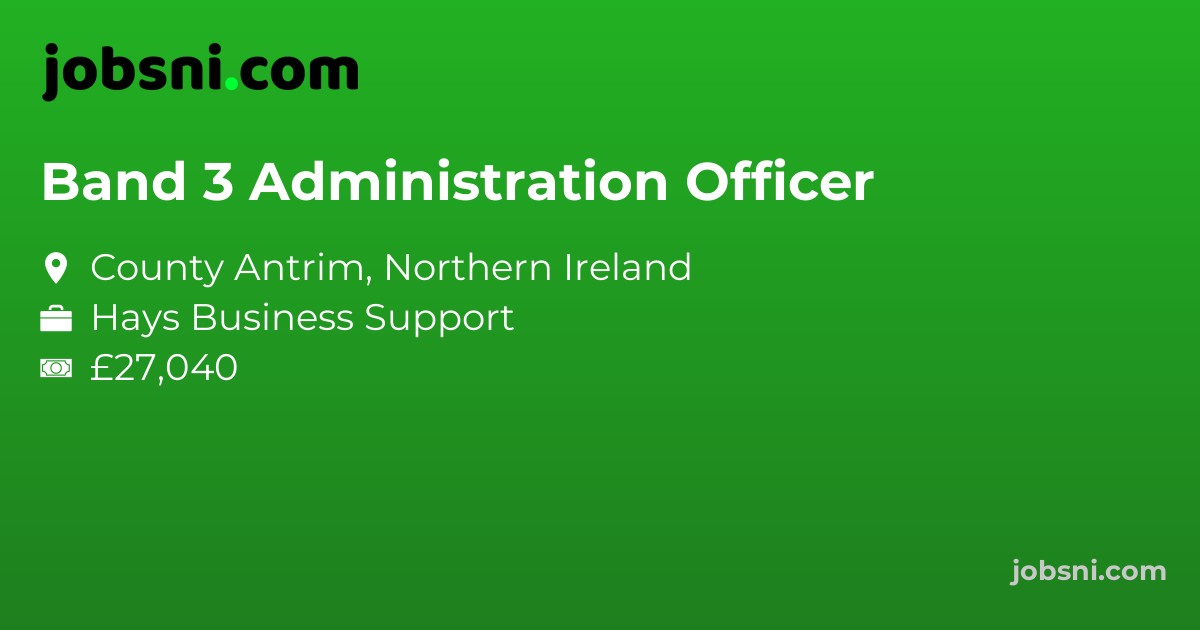PERSON SPECIFICATION
|
NOTES TO JOB APPLICANTS |
|
|
SECTION 1 – ESSENTIAL CRITERIA |
The following are essential criteria which will initially be measured at the shortlisting stage and which may also be further explored during the interview/selection stage. You should therefore make it clear on your application form how, and to what extent you meet these criteria. Failure to do so may result in you not being shortlisted.
|
Factor |
Essential Criteria |
Method of Assessment |
|
Qualifications/ Professional Membership |
Hold a teaching qualification which meets the requirements for recognition to teach in grant-aided schools in Northern Ireland |
Shortlisting by Application Form |
|
Experience
|
Have two years demonstrable experience within the last seven years teaching in a primary setting Demonstrable experience of working with children who have Special Educational Needs or Social, behaviour and emotional and well-being (SBEW) difficulties |
Shortlisting by Application Form |
|
Knowledge |
Knowledge of the Northern Ireland Primary Curriculum Knowledge of the current educational developments within the area of Special Education and also within the wider educational context Knowledge of using ICT to enhance teaching and learning in the classroom |
Shortlisting by Application Form |
|
Other |
The successful candidate will be required: to have access to a suitable vehicle (appropriately maintained and insured for Education Authority business) that will enable them to carry out the mobility requirements of the post in an efficient and effective manner and thus meet this essential criterion; OR be able to provide sufficient information on the application form that will satisfy the employer that he/she has access to an appropriate alternative form of transport that will enable them to carry out the mobility requirements of the post in an efficient and effective manner and thus meet this essential criterion. |
Shortlisting by Application Form |
|
Other |
Be registered with the General Teaching Council for Northern Ireland (GTCNI) before taking up post |
Pre-employment Check |
|
SECTION 2 – ESSENTIAL CRITERIA |
The following are additional essential criteria which will be measured during the interview/selection stage.
|
Factor |
Essential Criteria |
Method of Assessment |
|
Knowledge |
Knowledge of current assessment methods to inform teaching Knowledge of Child Protection issues |
Interview |
|
Experience |
Experience of developing and implementing and/or delivering and/or providing personal development programmes or therapeutic interventions within an education setting. |
Interview |
|
Skills / Abilities |
In line with EA’s Game Changing People Model we will look for evidence of: Effective teaching and classroom management skills Ability to promote positive relationships with pupils, colleagues, parents and the wider community Ability to successfully manage multi-priorities in a fast-paced and changing school environment |
Interview |
|
Values Orientation / Identification with School Ethos |
Evidence of how your experience and approach to work reflect EA’s ethos and values. You will find information about our Values here. |
Interview |
|
SECTION 3 – DESIRABLE CRITERIA |
Some or all of the desirable criteria may be applied by the Selection Panel in order to determine a manageable pool of candidates. Desirable criteria will be applied in the order listed. You should make it clear on your application form how, and to what extent you meet the desirable criteria, as failure to do so may result in you not being shortlisted.
|
Factor |
Desirable Criteria |
Method of Assessment |
|
Qualifications and Experience |
Demonstrable experience of monitoring pupil progress, performance, target setting and intervention |
Shortlisting by Application Form |
DISCLOSURE OF CRIMINAL BACKGROUND
The Safeguarding Vulnerable Groups (Northern Ireland) Order 2007 defines working directly with children or young people or in specified places as ‘regulated activity’.
In the event that you are recommended for appointed to a post that involves ‘regulated activity’, the Education Authority will be required to undertake an Enhanced Disclosure of Criminal Background. Please note that you WILL be expected to meet the cost of an Enhanced Disclosure Certificate. Details of how to make payment will be sent to you at the pre-employment stage.
Further information can be accessed at NI Direct or the Department of Justice.
APPLICANT GUIDANCE NOTES
To view the applicant guidance notes, please click here.
To learn about the many great benefits of joining the Education Authority, click here
The Education Authority is an Equal Opportunities Employer
EOTAS Teacher -Primary Behaviour Support & Provisions – 1 post
Primary Location : Antrim Sunflowers EOTAS
Other Locations :Antrim-Ballymena-Ballee Centre
Additional Information: One post available in Sunflowers EOTAS (Antrim).
JOB DESCRIPTION
Responsible to: Senior Teacher for Primary Behaviour Support & Provisions
General Information about Primary Behaviour Support & Provisions
Primary Behaviour Support and Provisions (PBSP) works in partnership with schools, parents and other professionals and agencies to support the personal, social and educational development of children experiencing social, behavioural, emotional and wellbeing difficulties. The service provides a range of training and support for school staff and those pupils experiencing social, behavioural, emotional and wellbeing difficulties (SBEW) to achieve their full potential within nursery, primary and special schools. Support is also provided to pupils and staff within specific educational provisions.
Support can range from capacity building, with the aim of providing professionals with the knowledge and skills they need to support pupils in school, to advisory, targeted, early intervention and preventative support for pupils through to intensive intervention. A flexible programme of support is offered based on a continuum of the individual child’s needs.
EOTAS programmes form part of the Education Authority’s Primary Behaviour Support and Provisions intensive intervention for pupils with SBEW needs. Pupils that take up a placement within any of the EOTAS programmes also remain on the register of their mainstream school.
- Each EOTAS programme is managed by a Senior Teacher, under the direction of an Adviser for Primary Behaviour Support and Provisions.
- Multidisciplinary work is an important part of the work in each programme. Education Psychologists, Education Welfare Officers, Youth Workers, Social Workers, Medical Officers and other services/ agencies can be involved with pupils and their families, the degree of which will depend on the needs of each case.
- Ongoing liaison with schools is an important part of the work of the Primary Behaviour Support and Provisions programmes.
Primary Behaviour Support and Provisions, inspire, support and challenge school communities to create child-centred, flexible and responsive approaches to meet the needs of all pupils.
Guidelines in relation to role, responsibilities & communication
The following document’s purpose is to facilitate the role of the Primary Behaviour Support and Provisions (PBS&P) Teacher. It is devised to be supportive, give clarity to the staff role and to communicate clearly expectations for both the post holder alongside those of management.
The PBS&P Teacher, is responsible to the Senior Teacher for Primary Behaviour Support & Provisions, who will approve the PBS&P teacher’s timesheet and any travel and subsistence claims.
The PBS&P Teacher will work with staff within Primary Behaviour Support and Provisions and other members of the Education Authority’s (EA) Children and Young People’s Services in developing and implementing programmes of support and teaching for pupils with social, behaviour, emotional and wellbeing (SBEW) needs. The PBS&P Teacher will be responsible for curriculum delivery within the EOTAS centre which provides a specialist support service to Key Stage 1 & 2 pupils who have SBEW needs. This will involve working directly with and teaching primary pupils at Key Stage 1 & 2 as well as supervising staff providing support to the teacher. The post will also involve supporting teachers in mainstream schools who are seeking advice and practical strategies on the management of pupils with challenging behaviour by delivery of training, consultation and implementing an intensive pupil intervention programme. The PBS&P Teacher will liaise closely with other areas of the EA including Statutory Operations within Special Education, Education Welfare Service, Psychology Service and other services and agencies involved with pupils referred to Primary Behaviour Support and Provisions.
MAIN DUTIES AND RESPONSIBILITIES
As detailed in the Teachers’ (Terms and Conditions of Employment) Regulations (Northern Ireland) 1987. To view click here.
In addition to teaching duties the successful candidate will be required to support the wider EOTAS provision at Key Stages 1 & 2 and may be required to work across other EOTAS Centres within a reasonable distance.
The successful applicant will also be required to:
1. Contribute to the delivery of a range of interventions:
1.1 Contribute to the delivery of intervention for pupils who require more specific support in relation to SBEW;
1.2 Plan and implement individual, group or whole class educational programmes designed to address need.
1.3 Utilise an appropriate range of teaching and assessment approaches, in accordance with the identified needs of pupils.
1.4 Devise, implement and evaluate pupil support plans, as described within the Code of Practice, for pupils attending EOTAS and being supported within school.
1.5 Maintain reports of intervention, assessment and progress for each pupil receiving support.
1.6 Be involved in regular curriculum discussion and act as a coordinator for a specific curricular area.
1.7 Carry out a process of continuous assessment and recording of the development, progress and attainment of pupils.
2. Liaise with other EA Services and Agencies
2.1 Make the necessary links with referring pupil schools as required by the PBS&P Senior Teacher.
2.2 Promote a co-ordinated and multi-disciplinary approach to address the presenting needs of pupils both in school and on placement in EOTAS.
2.3 Provide advice and support to schools to develop and implement effective strategies and interventions to address the needs of pupils with SBEW.
2.4 Work collaboratively with mainstream schools, teachers, youth workers, parents/carers, other EA Services and external agencies to ensure that pupils’ needs are addressed holistically.
2.5 Contribute to multi-disciplinary meetings, as appropriate, regarding the needs of individual pupils.
3. Promote Parent/ Carer Involvement
3.1 Promote and develop effective partnerships with parents and carers to enable them to support their children‘s learning, well-being and development. This will involve liaising with parents, offering advice, support and encourage consistent management.
3.2 Encourage liaison between home and centre to maximise consistency in relation to the effective strategies that are being implemented to meet the needs of the pupil.
3.3 Encourage the participation of parents, carers and other relevant professionals in the planning and delivery of individual education plans.
4. Participate in Continued Professional Development
4.1 Keep informed of current approaches, teaching strategies, methodologies and resources relevant to teaching and supporting pupils with SBEW needs so that appropriate interventions can be applied in the learning environment.
4.2 Participate in staff development programmes and in-service training.
5. Any Other Duties
5.1 Undertake any other related duties as required by the Education Authority.
5.2 Comply with the Education Authority’s policies and procedures in relation to the duties and responsibilities of the post.
5.3 Maintain at all times confidentiality of information received.
This job description will be subject to review in light of changing circumstances and is not intended to be rigid and inflexible but should be regarded as providing guidelines within which the individual works. Other duties of a similar nature and appropriate to the grade may be assigned from time to time.
In accordance with Section 75 of the Northern Ireland Act (1998), the post-holder is expected to promote good relations, equality of opportunity and pay due regard for equality legislation at all times.
To view the summary of terms and conditions for this post, click here.









